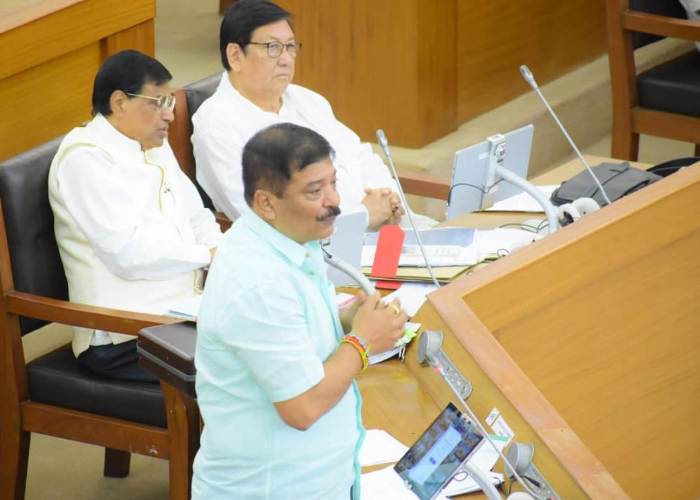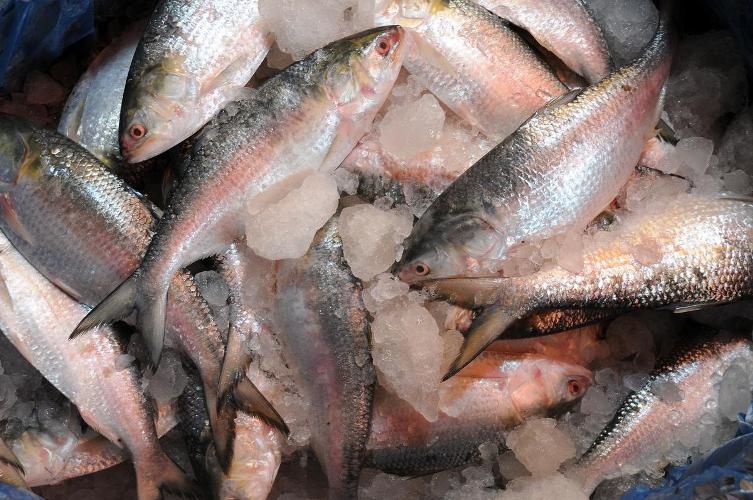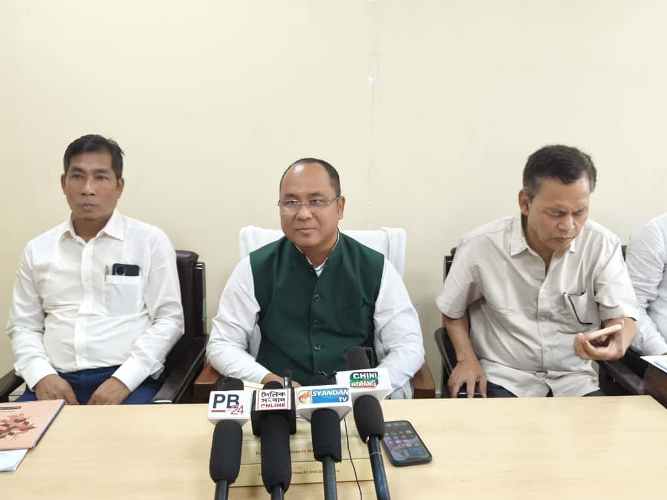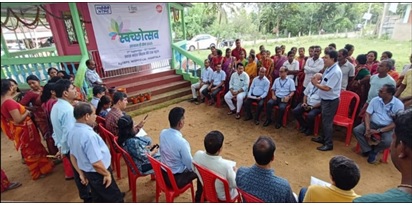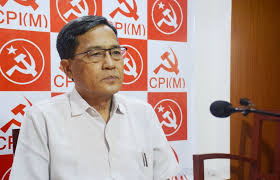Opposition challenges govt claim, rural drinking water achieved 86%: CM
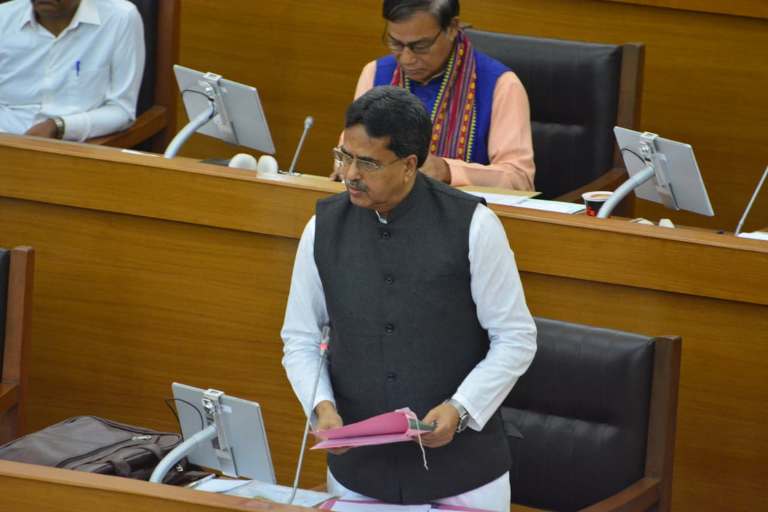
In the first day of the autumn session of Tripura Assembly, Chief Minister replying to a private members’ resolutions on Friday said that Tripura achieves 86% rural drinking water coverage, but participating in the discussion, opposition MLAs claimed that there are vast differences in between statistical figures and in reality.
Chief Minister Prof. Dr Manik Saha on Friday said that the present government is working in a mission mode to ensure drinking water supply throughout the state. Keeping this goal in mind, drinking water connections have been provided to 6,46,758 families till September 15, 2025.
Dr Saha said this while replying to a private member’s resolution brought by MLA Ram Pada Jamatia during the second hour of the first day of the state assembly session.
During discussion in the resolution ruling alliance Tipra-Motha MLA Chittaranjan Debbarma supporting resolutions said that still major parts of hilly areas are suffering from safe drinking water. He suggested the government take innovative steps to resolve the scarcity of drinking water.
While, in the discussion leader of opposition (LoP) Jitendra Chaudhury said that there are vast differences between statistical figures and in reality Drinking Water and Sanitation (DWS) data. He said that government’s agencies with a spanning of crores of funds have installed pipelines, deep tube wells in rural areas, but a major section of these connections are not in function, as a result people are still suffering scarcity of drinking water, which is the very worst condition in hilly areas. He requested the state government to take concrete steps to resolve the suffering of common people.
Congress MLA Gopal Chandra Roy said that water pipelines are not extended as per need and he urged the government to take steps to reduce water scarcity in Agartala city.
While addressing the House, Dr. Saha said that Prime Minister Narendra Modi launched the Jal Jeevan Mission on August 15, 2019, after which significant changes have been witnessed across India. In Tripura too, since the launch of the project, the Drinking Water and Sanitation Department has been working in a mission mode to ensure regular and long-term drinking water supply to both hilly and plain areas through pipelines.
The Chief Minister said that three-fourths of the earth is land and one-fourth is water, and therefore, water scarcity is a global challenge.
“Today, many members have made important observations on this issue. Their suggestions will definitely be taken seriously, and necessary measures will be implemented by the department and the government. The total number of families in the hilly and plain areas of the state is 7,50,849, of which 6,46,758 families have been provided with drinking water connections till September 15, 2025. Earlier, only about 3% of families had pipeline-based drinking water connections. From that mere 3%, our government has now raised the figure to 86.14% of households. Drinking water has been supplied through pipelines in both hilly and plain areas, covering 587 ADC Village Councils and 606 Gram Panchayats,” said Dr Saha.
The Chief Minister further informed that the state currently has 4,216 deep tube well projects, 10,176 small diameter deep tube wells, 40 surface water treatment plants, 1,831 iron removal plants, and around 531 innovative projects.
“The government is committed to providing drinking water connections to all rural households in the state through deep tube wells, small diameter deep tube wells, treatment plants, and innovative projects by utilizing various water sources such as groundwater and river channels. In the hilly areas, efforts are being made to supply water through innovative use of natural channels and springs,” Dr. Saha said.
He added that the DWS Department is working in a mission mode across the state by monitoring project quality, creating awareness, and ensuring timely implementation.
“The JJM project earlier existed in version 1.0, and it has now advanced to JJM 2.0, announced in the Union Budget 2025-26. Our state also has the CM Helpline 1905 and the Amar Sarkar Portal, where citizens can raise issues to ensure timely resolution. At present, Tripura has 21 NABL (National Accreditation Board for Testing and Calibration Laboratories)-certified labs, located across districts, subdivisions, and the state level, where water quality testing is carried out,” the Chief Minister added.

